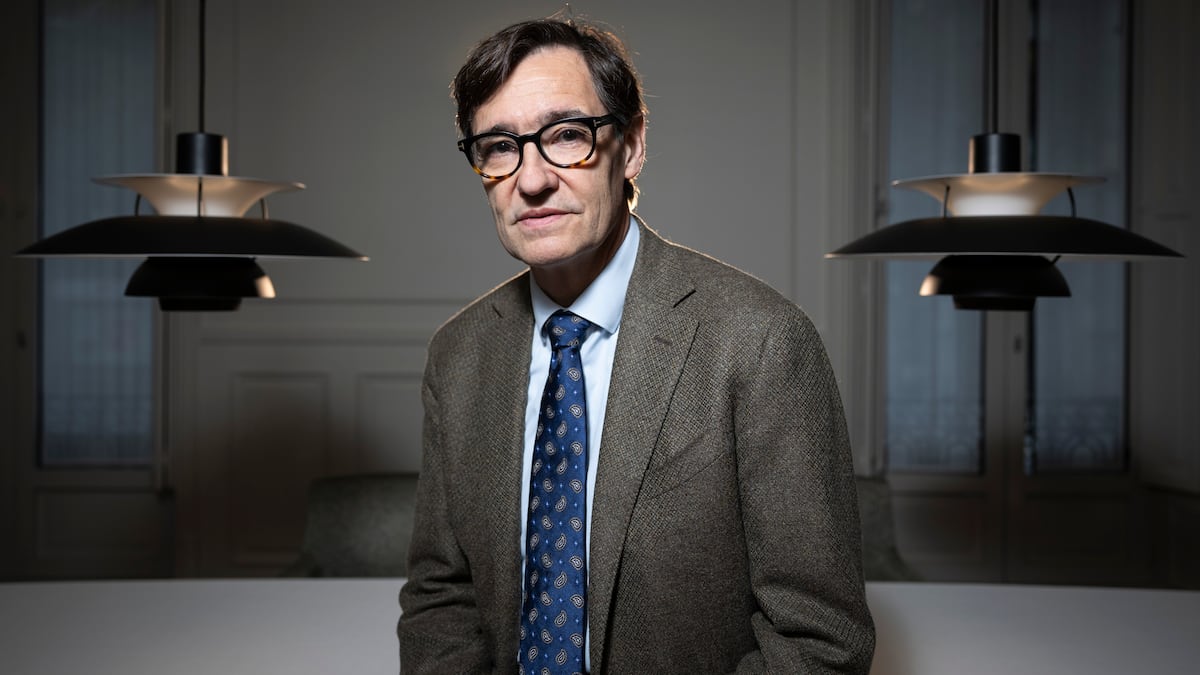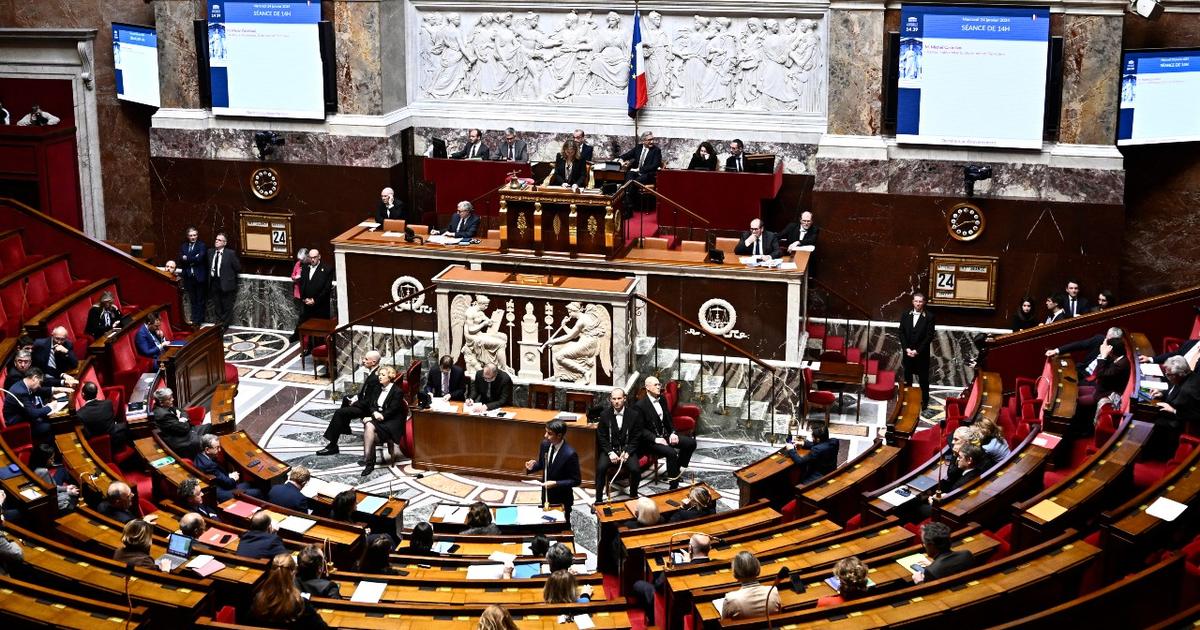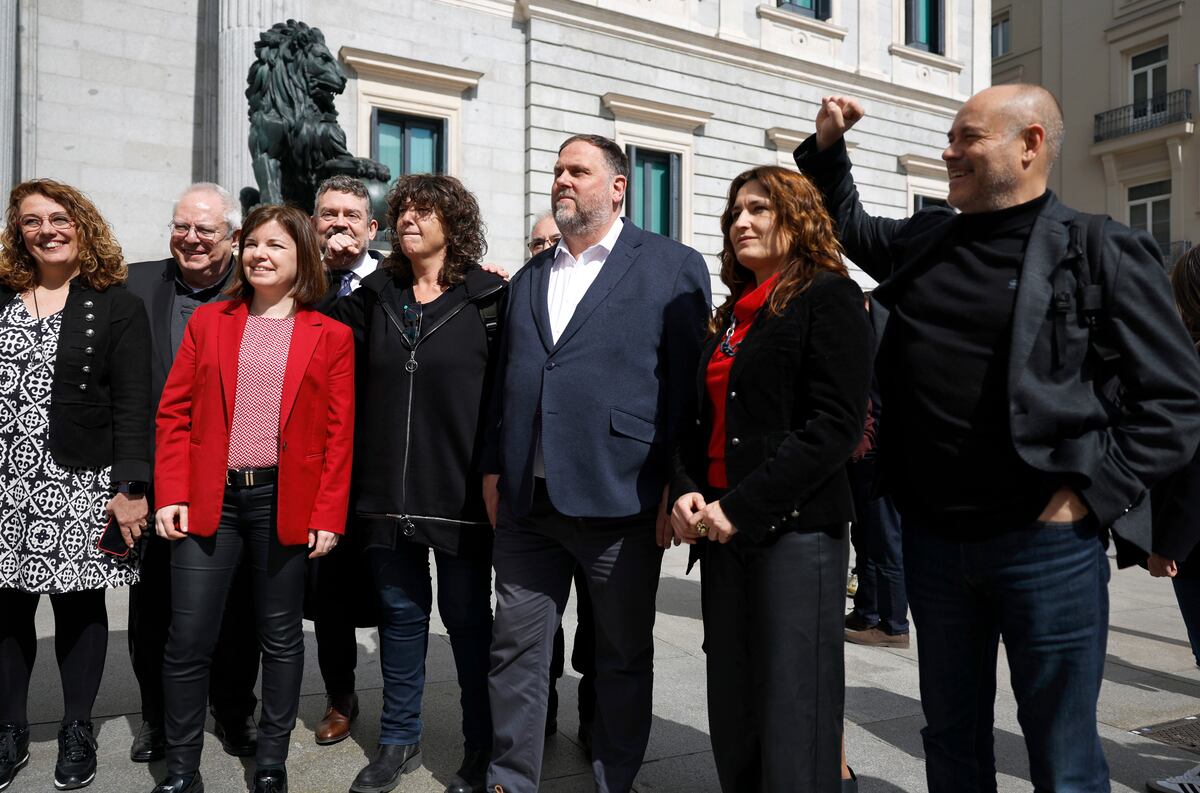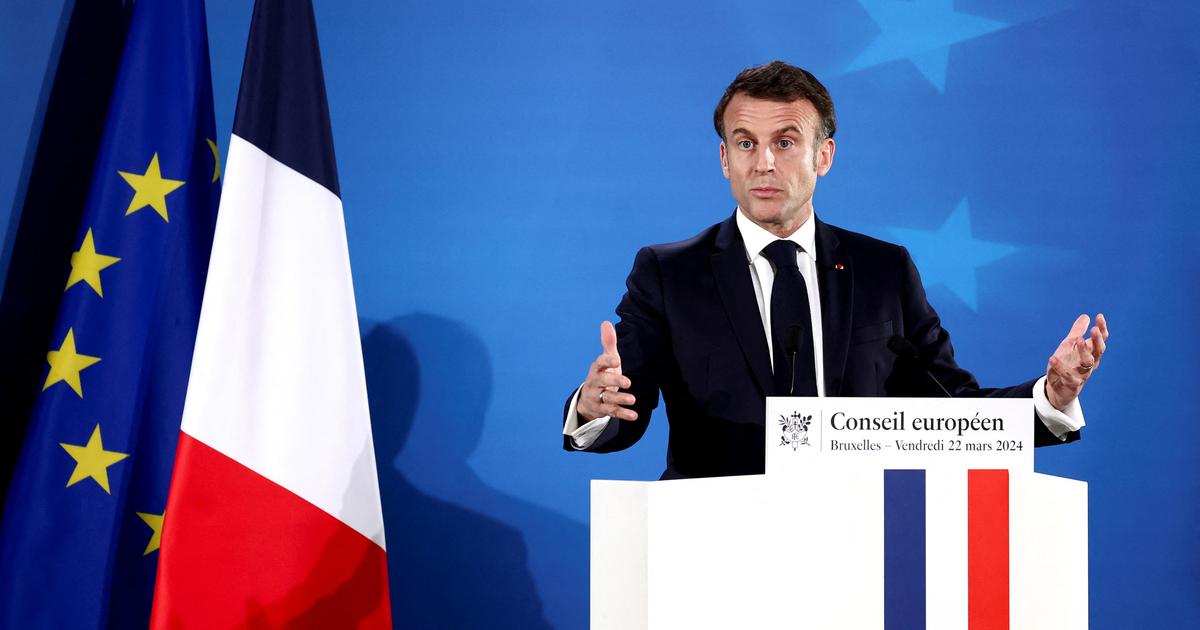Pedro Sánchez (left) greets Fernando Grande-Marlaska upon his arrival at the Emergency Coordination Center in Madrid on Wednesday Pool Moncloa / Fernando Calvo / Europa Press
Not only Catalonia, all Spanish politics was awaiting the elections in this community, which were to open the way to a long period of almost two years without relevant elections.
From the renewal of the Judiciary to the internal tension of the Government, through the decisive channeling of the Catalan independence crisis or the fierce battle between the PP and Vox for the space of the right, everything would be resolved on February 14.
The delay of the Catalans until May, various political sources agree, postpones that great truce that was expected after the elections and the possible agreements between PSOE and PP.
Since the first wave collapsed in summer, the Government had set the two major milestones that would determine the stability and duration of the legislature: the Budget and the Catalan elections.
The approval of the public accounts came a week earlier than expected, on December 22 in the Senate.
But once again Catalonia has blown up the Executive's calculations.
The first, that after the Catalans, Spain would enter a period without elections of almost two years - the Andalusians, if they do not move forward, will be in December 2022 - unprecedented since 2015 after four generals, some European, some regional, some municipal and two motions of no confidence.
A period of truce at the polls that the Government intended to take advantage of to try to channel the great territorial crisis that, until the pandemic, has conditioned all national politics.
And also to seek agreements with the PP, which after the Catalans would have a calmer period, especially if he could comfortably overcome Vox in this community, a central issue for Pablo Casado.
And it was also an ideal time to reinforce the majority, with a more stable agreement with ERC, which was supposed to be more comfortable in the Generalitat if it finally managed to gain the primacy of the independence movement that it has never achieved at the polls.
One of the central objectives of the Government for this legislature is to redirect the
process
, appease the independence crisis and seek a new way of understanding.
The dialogue table that was agreed with ERC, and that has only met once, was to be resumed after February 14, and has been postponed again without a date.
Even the pardons for the
procés
prisoners
were scheduled for after the Catalans, and now the Executive may have to make the decision before the elections, something very complex to manage politically.
Finally, the Catalans were the expected milestone to reduce the internal tension between the PSOE and United We Can.
Socialists attribute part of the positions of Pablo Iglesias' group in recent weeks to their need to differentiate themselves to avoid a bad result in Catalonia, one of the bastions of the movement that emerged from 15-M that has resulted in various formulas in each community and which is in decline in several of them.
It was assumed that after the Catalans things would be calmer, although at United We Can insist that they will continue to claim substantive positions on sensitive issues for the progressive world and that affect millions of people such as the pension reform, labor, the minimum wage or electricity rates, to give far-reaching examples.
The delay of the Catalans leaves everything open for another three and a half months and eliminates a scenario of calm of several months that the PP could take advantage of to finally agree to the renewal of the Judicial Power, which has expired for more than two years.
Married has a new date to postpone the agreement.
The Government will redouble the pressure.
In fact the conversations between the Executive and the PP are maintained.
And they are already talking about a possible renewal of the RTVE council, whose mechanism is underway in Congress.
It could be a first agreement that opens the way for others.
There are several attempts underway to also agree on the new ombudsman - the socialist Ángel Gabilondo is one of the strongest candidates, something that would open a renewal of opposition leadership in Madrid that many hope in the PSOE - and renew the Constitutional Court , but the delay of the Catalans can complicate everything again.
Even a matter as far from Catalonia as the alternative to the Government of Isabel Díaz Ayuso is thus rebounding linked to the elections to choose who heads the Generalitat.
They are the last big elections in a cycle that this delay makes endless again.
Everything was therefore pending on the Catalans, but in La Moncloa pragmatism prevails and they quickly adapt to the change of scenery.
Sánchez's strategists, led by Iván Redondo, had designed a coup with the surprise candidacy of Salvador Illa, the Minister of Health, as head of the PSC list.
Now those plans have been disrupted.
Illa has decided to continue as minister until the end, until the campaign begins.
Some believe that with the delay, the independentistas, allied in this with the PP and Ciudadanos, have broken the strategy of Sánchez and Redondo.
Illa has spent many months with the double head, that of minister and candidate, and that can wear out, analyze various politicians consulted.
But in La Moncloa they believe that it is the other way around, that ERC “has shaken his legs” due to polls that gave a triple tie between them, Junts per Catalunya and the PSC, and now they have given Illa a lot of time to consolidate as the great rival to beat.
The minister's decision, despite the harsh criticism he received, to stay in office after announcing his candidacy opens up another scenario.
If, as the Government hopes, vaccination takes cruising speed and by May the pandemic is in a new, much milder phase, it could benefit it.
Time will tell if those who believe that this delay punctures the
Illa balloon
or its defenders who believe that time will only make the phenomenon grow are right.
In the Government a strong discomfort is perceived with the decision of ERC to postpone the elections and especially with the form, because they do not see legal protection.
In the Executive they are convinced that the pandemic and the worsening of the data is not the real reason for the decision, which is taken according to their vision only for political reasons related to Illa's candidacy.
But in the interview in EL PAÍS the Minister of Health and candidate of the PSC has made it quite clear that he does not intend to fight this issue and in La Moncloa they are already working on the scenario that the elections will be on May 30.
What is clear is that the government crisis scheduled for the end of January will also be left for May.
Sánchez has the last and almost the only word, but the idea was that the changes were punctual.
Instead of a deep remodeling, it was intended to be surgical: the Minister of Territorial Policy, Carolina Darias, would take over from Illa in Health.
And the first secretary and former candidate of the PSC, Miquel Iceta, would be the novelty in the Council of Ministers, as the new head of Territorial Policy.
But that too will have to wait.
The delay of the Catalans has put many key decisions in Spanish politics on hold.
The coalition consolidates its unstable stability
On the surface, the feeling is that the PSOE and United We can maintain a strong internal tension that has constant milestones, such as last week's attack by Ione Belarra, Pablo Iglesias's most trusted person, against Margarita Robles, the Minister of Defense , which he accused of siding with "the right wing and the ultras" for rejecting an investigation in Congress on the use of opaque funds by the king emeritus.
However, when one analyzes more in depth with some of the protagonists of that permanent negotiation that is a coalition, the atmosphere in recent days between the PSOE and United We Can seems much calmer.
In fact, several internal agreements are being forged on relevant matters, although discrepancies remain on others.
“You have to get used to the fact that while Italy breaks its government, Spain is becoming one of the most stable coalitions in Europe.
But that does not mean that there are no discussions.
The tension over the underlying issues will continue but everyone knows that the coalition will hold out because nobody wants to break it, ”summarizes a member of the Executive.
It is a kind of unstable stability, in which the different positions of the two parties are constantly seen on sensitive issues, especially economic ones and that of the monarchy.
But the protagonists of the disputes and their leaders, Pedro Sánchez and Pablo Iglesias, are very clear that they are not interested in breaking the coalition.
The leader of the PSOE because he knows that governing alone with United We Can Against could be a hell that would wear them down and he wants a long term to take advantage of the economic recovery and the exit from the pandemic and above all the political management of the huge European recovery fund .
For the leader of United We Can, a break would have even less incentive.
Iglesias has transferred to his team that although the current situation may be complex for United We Can, because there are times coming when he may have to make difficult decisions in the Government, they would be much worse if they were outside the Executive giving external support, as requested the PSOE in 2019. Iglesias and his core of confidence are convinced that being in the Executive is their best asset, and they are not considering leaving.
And Sánchez does not seem to want to remove them either, although he does try to minimize their weight in economic policy.
That tension generates that unstable stability that supports a government that will try to finish the legislature.

/cloudfront-eu-central-1.images.arcpublishing.com/prisa/QRVOTENN5Q2XBZSBANB4Z7OAKE.jpg)





/cloudfront-eu-central-1.images.arcpublishing.com/prisa/5C635RG6YBGDPHDHXEOSQWFQ2Y.jpg)

